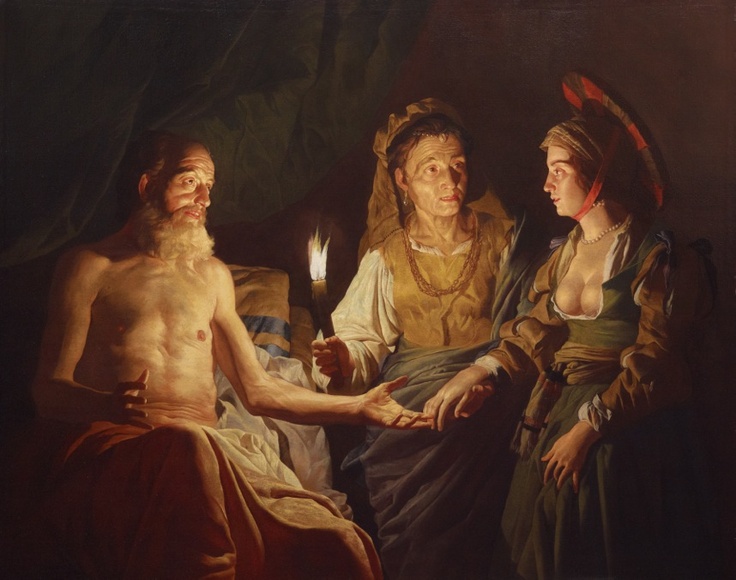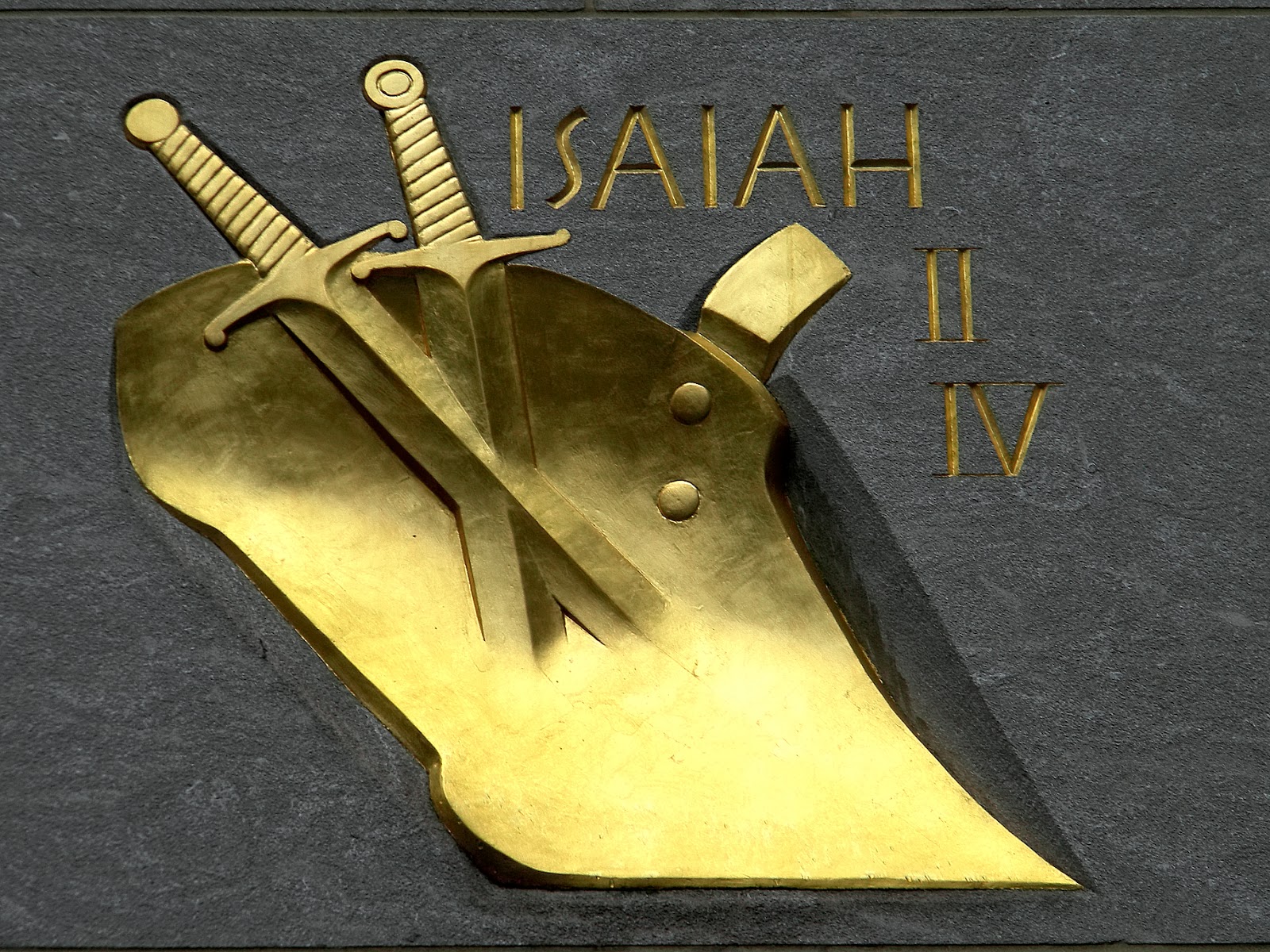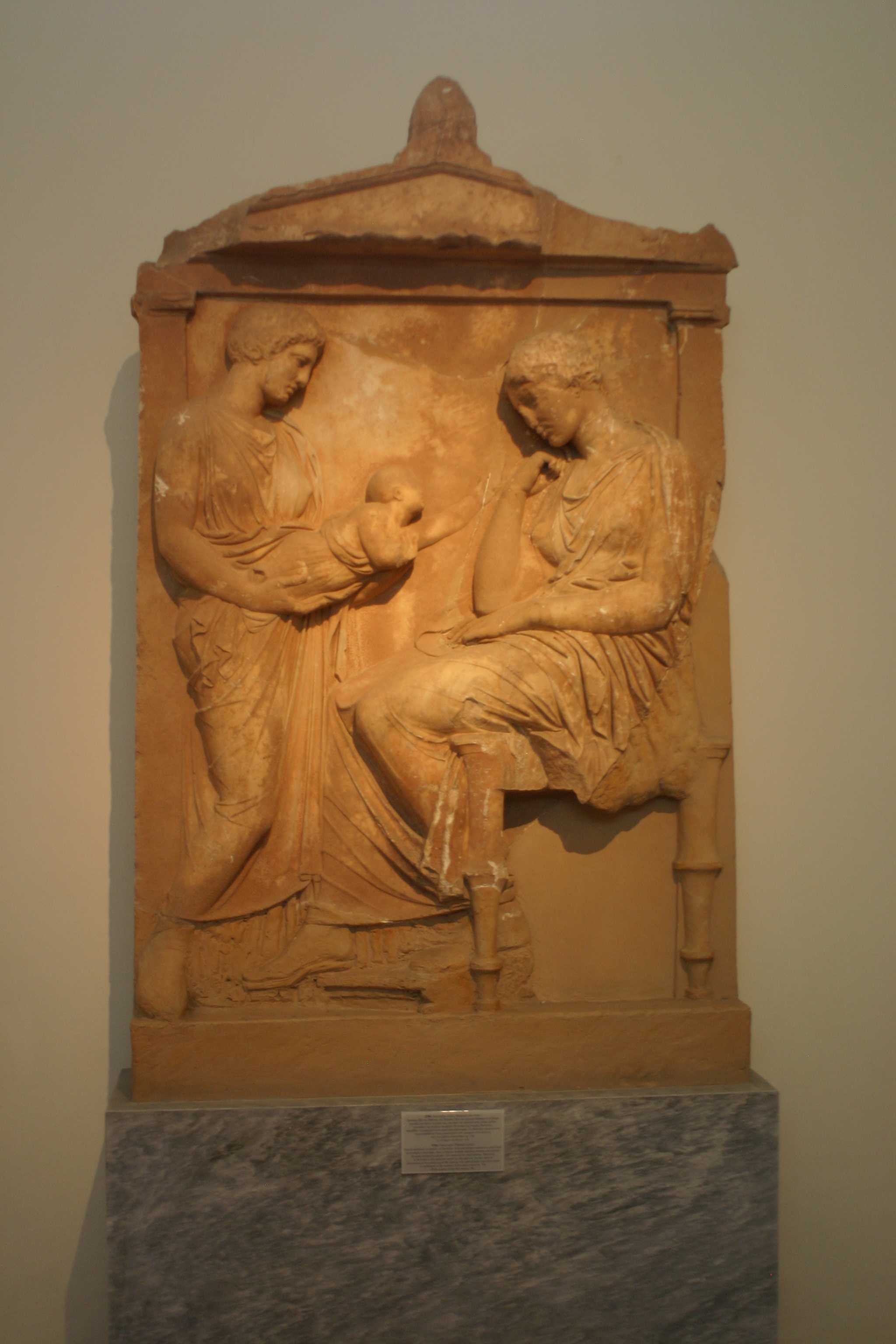Colossians 1:28 (NIV)
28 He is the one we proclaim, admonishing and teaching everyone with all wisdom, so that we may present everyone fully mature in Christ.
The overwhelming goal of the church that I am currently attending is Colossians 1:28. It has been repeated as the goal on a regular basis. This would seem to be a really straight forward and simple goal for a church to have. Come to think of it…shouldn’t this be the goal of all Christian churches? I mean, after all, Jesus told his Disciples to go and teach others to follow him, to be like him, so that these new Christian Disciples can also go and teach other people to be like Jesus and follow the teachings and the example of Jesus, and then those new Disciples will also follow the same pattern of living out who Jesus is in front of others, and teaching them to do the same. Seems pretty simple, right?

Matthew 28:19-20 (NIV)
19 Therefore go and make disciples of all nations, baptizing them in the name of the Father and of the Son and of the Holy Spirit, 20 and teaching them to obey everything I have commanded you. And surely I am with you always, to the very end of the age.”
So how do you think we as a church over the centuries have done with doing what Jesus told his Disciples to do? Do you know that we now live in what is called a “Post Christian Society”? You are probably thinking…”hmm…what does that mean?” Right?!! I actually was not aware of this myself, until recently. So this is what it means. In the past we could pretty much (at least here in the U.S.A.) count on the fact that every one had at least heard of Jesus, and most people who would call themselves Christian would know at least a little bit about the Bible. Now, in this modern age, we cannot say that this is true.
We cannot even say that people want to be Christian. In a lot of cases there are people who do not wish to be Christian because “Christians are mean hypocrites…they think they are perfect.” This reputation comes about because in our efforts to be “good Christians” and help people to know God we are often very unloving and critical of others. The truth is that we cannot expect Christian behavior from people who are not Christians and we cannot expect new Christians to change and know what they are to do overnight. The changes that we experience as Christians in ourselves and our lives are not of our own doing. They are changes wrought be the Holy Spirit residing within us as we spend time with him.
So you are probably wondering, how does a person come to really know God? I was one of those unchurched people for most of my life.
I learned about Jesus when I was about 4 years old, a neighbor girl who was about 8 told us about how she went to church and learned about Jesus. She started talking about Jesus and how he sacrificed his life for us, and asked us did we want to know more about him and take him into our hearts. About 4-5 of us said, “yeah, sounded like fun” and we all went to her house and sat in her bedroom and she read a little tract to us about taking Jesus into our hearts and how Jesus came to save us. Then she asked us if we wanted Jesus to come and live in our hearts. I remember thinking that it sounded like a good idea, so I said yes. Then we all prayed a prayer together, and that was how we were saved by Jesus. Now, I had and still have no idea what denomination she was from, I cannot even remember her name, but that girl had a most profound impact on my life.
Okay, so as a 4 year old, I really did not understand much about Christianity overall, but I was really serious about my nightly prayers of blessing for myself and others, and I believed that God was up there watching out for me. I moved a lot growing up so I did not have a lot of opportunity for church worship, but I took every chance I got to go. That being said I probably only went about 20 times the whole time I was growing up.
The thing is that Christianity is a journey that lasts a lifetime, yet we often treat all Christians the same…we have an expectation that they will have “Christian knowledge” and teaching beamed into their heads along with their salvation. We think that a person who is 50 and is a Christian has 50 years of Christianity under their belt…this is almost never true. Although I was saved when I was 4, I continued to “drink the milk” of the word until I was in my 20’s (that is a polite way of saying that I did not grow much in spiritual knowledge). When I got into my 20’s things started happening in my life that made me want to draw closer to God and learn more about him. This is known as “eating the meat” of the word….many Christians, as sincere as they are in their dearly held beliefs never get into the deep teachings of the Kingdom of God….largely because churches are failing to teach them how to grow and that growth is how you draw closer to God. It is a truth that spiritual growth can only come from time spent with the spirit, but how does a person who is a newly minted Christian learn to spend time with the Spirit? How do they learn how much God loves them? How do they become so full of the Holy Spirit that people around them are drawn to them and want to know what they know about God?
Modern churches are teaching people about the after-life, but not about the life they are living here. Sure they teach what to do and not to do, but it is not the same. A person can spend many years in churches and be sincerely believing the wrong things about God because they have not spent personal time with the Holy Spirit. They have not truly been discipled by a disciple who was discipled by a disciple.
I have attended many churches over the years, and each one taught me something that helped me to grow. Sometimes the things that they taught were more on the lines of my coming to understand the errors in their methods and doctrines…other times the growth has been more positive.
The church I am in now is very small, I mean about 20 people on any given Sunday. It doesn’t have a bunch of social programs, it is pretty simple, we go and worship, and learn about God, and then we go out and “do the stuff” that God directs us to do. We draw close to God and he draws close to us, and so we listen to the Holy Spirit tell us what we should be doing in our service to him.
The thing that most churches seem to have lost is that most of the work of the Holy Spirit is not within the doors of the church …it is done after we leave the church during the course of our daily lives.

Going to church should be about learning about and worshipping God, and giving and receiving love from other Christians, and connecting with people who are also following Christ. We see this in the Bible also, the Disciples went out among the population and shared the good news of Jesus, and they wrote letters to continue to disciple the people that they had shown “the Way” to through letters, and messengers, and return visits….they also rejoined each other occasionally to discuss things, as in Acts 15 where there was a discussion about whether newly converted Gentile believers should be circumcised and had to become Jews or not. (Take a look at Acts 15…it is an amazing debate, which is ended by James the brother of Jesus stating his opinion based on scripture that everyone who is saved is saved by grace.)
Many modern churches have put so much “institution” and “structure” into their beliefs that people come away with a burden; much like the burden that Jesus criticized the Pharisees for putting on the Jewish people. There is a lot of “don’t do this, and don’t do that” and “be sure to do this and be sure to do that” and “those who do this will be condemned”, you get the idea. Most of what people are hearing in the church comes down to the thought that “God is mad at you, so you must make it up to God by saying this prayer and doing this or that thing.”
Now, don’t get me wrong here, obedience to what Jesus taught is important, but it is not the source of salvation. Jesus is the source of salvation…and only Jesus.
Jesus told us that his yoke (that is his teaching) is easy, and it is light for us…in more ways than one.

Matthew 11:28-30 NIV
28 “Come to me, all you who are weary and burdened, and I will give you rest. 29 Take my yoke upon you and learn from me, for I am gentle and humble in heart, and you will find rest for your souls. 30 For my yoke is easy and my burden is light.”
So what is the teaching of Jesus? It is very simple, just as he said:
- Love the Lord your God with all your heart, mind and soul.
- Love your neighbor as yourself
- Repent and believe in Jesus as savior
John 3:16-17 (NIV)
16 For God so loved the world that he gave his one and only Son, that whoever believes in him shall not perish but have eternal life. 17 For God did not send his Son into the world to condemn the world, but to save the world through him.
Jesus’ message was life changing to the Disciples, and it was life changing to the people who listened to the Disciples. It was a “look the world sees things this way, but God sees the world completely differently” and “look the world sees you this way, but God sees you entirely differently”.
The world is full of judgment and strife and requirements and expectations…it is full of pain and unforgiveness.
God is full of love and forgiveness…God loves you like crazy and his way of seeing things is that you can relax and let God be in charge of your life….you don’t need to work so hard to feel good about yourself. God already knows what you are going to choose to do, and he already knows what is happening in your life and what will happen in your life. He is ready to forgive you anytime you turn to him and ask…you don’t have to jump through hoops to get his love and forgiveness, but you do have to follow Jesus’ teaching and allow Jesus to be the Lord of your life. AND when Jesus is our Lord, that means that we are not Lord.
In a nutshell, if the message you are hearing from the pulpit is not full of God’s love and forgiveness…if it is not life changing…then how is that message “Good News?” How is it different from the message of the world?


 Genesis 37:26-28
Genesis 37:26-28
 One of Jesus’ names is the Lion of Judah.
One of Jesus’ names is the Lion of Judah. 



 Genesis 16:15-16
Genesis 16:15-16  Genesis 21
Genesis 21 Matthew 13:44 The Kingdom of heaven is like treasure hidden in a field. When a man found it, he hid it again, and in his joy he went and sold all that he had and bought the field.
Matthew 13:44 The Kingdom of heaven is like treasure hidden in a field. When a man found it, he hid it again, and in his joy he went and sold all that he had and bought the field.  Also under the laws in Leviticus the selling of the land was not to be permanent…so you may say it was more of a renting out for the use of the land and its crop.
Also under the laws in Leviticus the selling of the land was not to be permanent…so you may say it was more of a renting out for the use of the land and its crop. Luke 8:4-15
Luke 8:4-15 Read John 8:1-11
Read John 8:1-11 Read John 5:1-15
Read John 5:1-15


 This business of Saul ridding himself of his Oxen which were the tools of his farming life, and sending them off to threaten the “farming life” that all of the people of Israel embraced…it was necessary because Nahash was threatening the peace and life styles of all of Israel…he probably wouldn’t have stopped at just the city of Jabesh. Saul was announcing that it was a “time of war”. War is brutal and shocking…Saul wanted to make sure he made that clear to start with, but that in this case it was necessary to defend their people. Suddenly, the “timid” “quiet man” who was a farmer was awakened as a “warrior king”. Israel’s response is amazing and also gives us some numbers to think of: 330,000 men come in response to Saul’s call. They go against Nahash and they succeed in rescuing Jabesh.
This business of Saul ridding himself of his Oxen which were the tools of his farming life, and sending them off to threaten the “farming life” that all of the people of Israel embraced…it was necessary because Nahash was threatening the peace and life styles of all of Israel…he probably wouldn’t have stopped at just the city of Jabesh. Saul was announcing that it was a “time of war”. War is brutal and shocking…Saul wanted to make sure he made that clear to start with, but that in this case it was necessary to defend their people. Suddenly, the “timid” “quiet man” who was a farmer was awakened as a “warrior king”. Israel’s response is amazing and also gives us some numbers to think of: 330,000 men come in response to Saul’s call. They go against Nahash and they succeed in rescuing Jabesh.

 2.) Lying Tongue…well we don’t need an explanation of this do we? We have all done this….told a lie when the truth would do…sometimes, the lie is as simple as answering, “NOT ME!” when asked if you know who did something. (This particular answer is prevalent in all households with children…in fact, I was once cleaning one of my customer’s houses and one of the children had written it on the wall…I thought, “Oh, so “Not Me” lives here too!”)
2.) Lying Tongue…well we don’t need an explanation of this do we? We have all done this….told a lie when the truth would do…sometimes, the lie is as simple as answering, “NOT ME!” when asked if you know who did something. (This particular answer is prevalent in all households with children…in fact, I was once cleaning one of my customer’s houses and one of the children had written it on the wall…I thought, “Oh, so “Not Me” lives here too!”) 5.) Feet that are quick to rush into evil… This is talking about a person who hears an idea that is to do something wrong, but jumps right into doing it anyway…not taking time to consider how that wrong will affect themselves or those around them.
5.) Feet that are quick to rush into evil… This is talking about a person who hears an idea that is to do something wrong, but jumps right into doing it anyway…not taking time to consider how that wrong will affect themselves or those around them.

 7.) A man who stirs up dissension among his brothers…(now this applies to women who stir it up amongst their sisters also)…Dissension is discontent, and disharmony, disunity, and disagreement…God does not like people who sow those seeds amongst others. This is another situation you see quite often. There is another way to say this…one bad apple ruins the barrel. This is to say that you can have a group of people who are really in unity and they are working together with a common goal and a common loving spirit and in comes one person who doesn’t like something or someone.
7.) A man who stirs up dissension among his brothers…(now this applies to women who stir it up amongst their sisters also)…Dissension is discontent, and disharmony, disunity, and disagreement…God does not like people who sow those seeds amongst others. This is another situation you see quite often. There is another way to say this…one bad apple ruins the barrel. This is to say that you can have a group of people who are really in unity and they are working together with a common goal and a common loving spirit and in comes one person who doesn’t like something or someone. Luke 20:45-47
Luke 20:45-47